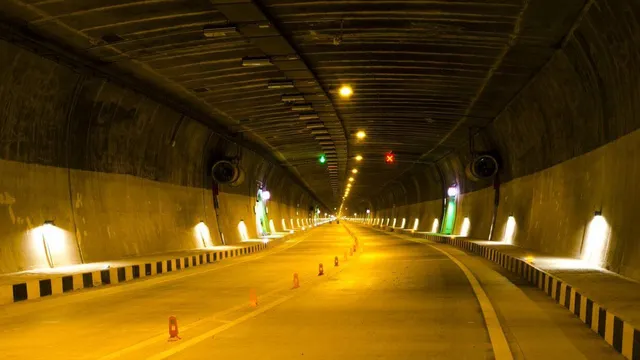- By Imran Zafar
- Sat, 24 Aug 2024 03:27 PM (IST)
- Source:JND
The Karnataka Cabinet, led by Chief Minister Siddaramaiah, granted in-principle administrative approval for two significant infrastructure projects aimed at alleviating traffic congestion in Bengaluru. These include the construction of an 18.5-kilometer tunnel road and a 250-foot tall skydeck, with the total estimated cost amounting to Rs 13,190 crore.
The centrepiece of this initiative is the 18.5-km tunnel road from Hebbal to Central Silk Board Junction on Hosur Road in Bengaluru. This project, with an estimated cost of Rs 12,690 crore, is expected to significantly ease traffic flow in one of the city's most congested corridors.
The twin-tube design follows successful models from Mumbai and adheres to Indian Road Congress norms. A feasibility study by Altinac Consulting Engineering Inc. also examined the possibility of a single-tube tunnel, which would be less costly but deemed less effective for the high traffic volumes anticipated.
Deputy Chief Minister D.K. Shivakumar has been a strong advocate for the tunnel, viewing it as a critical solution to decongest Bengaluru, which faces severe traffic issues due to its population of nearly 1.4 crore and about 1.10 crore vehicles. The planned tunnel is nearly double the length of Mumbai's recently inaugurated Dharmveer Swarajya Rakshak Chhatrapati Sambhaji Maharaj Coastal Road, which cost Rs 14,000 crore.
The project will be implemented in phases, with the first phase focusing on the tunnel between Esteem Mall in Hebbal and Central Silk Board Junction. Once the administrative approval is formalised, a Detailed Project Report (DPR) will be prepared and reviewed by a technical committee. The government will then initiate a tender process to select a construction agency.
Law and Parliamentary Affairs Minister HK Patil stated that the project will follow a Build, Operate, and Transfer (BOT) model, potentially involving a Public-Private Partnership (PPP) with 40 per cent Viability Gap Funding (VGF) from the state government. Should no private entities come forward, the project might proceed on an Engineering Procurement Contract (EPC) basis with toll revenue managed under a Hybrid Annuity Model (HAM).
Despite concerns about infrastructure quality and planning, with criticisms directed at the Bangalore Bruhat Mahanagara Palike (BBMP), these ambitious projects are seen as crucial steps in addressing Bengaluru's urban congestion and improving the quality of life for its residents.

